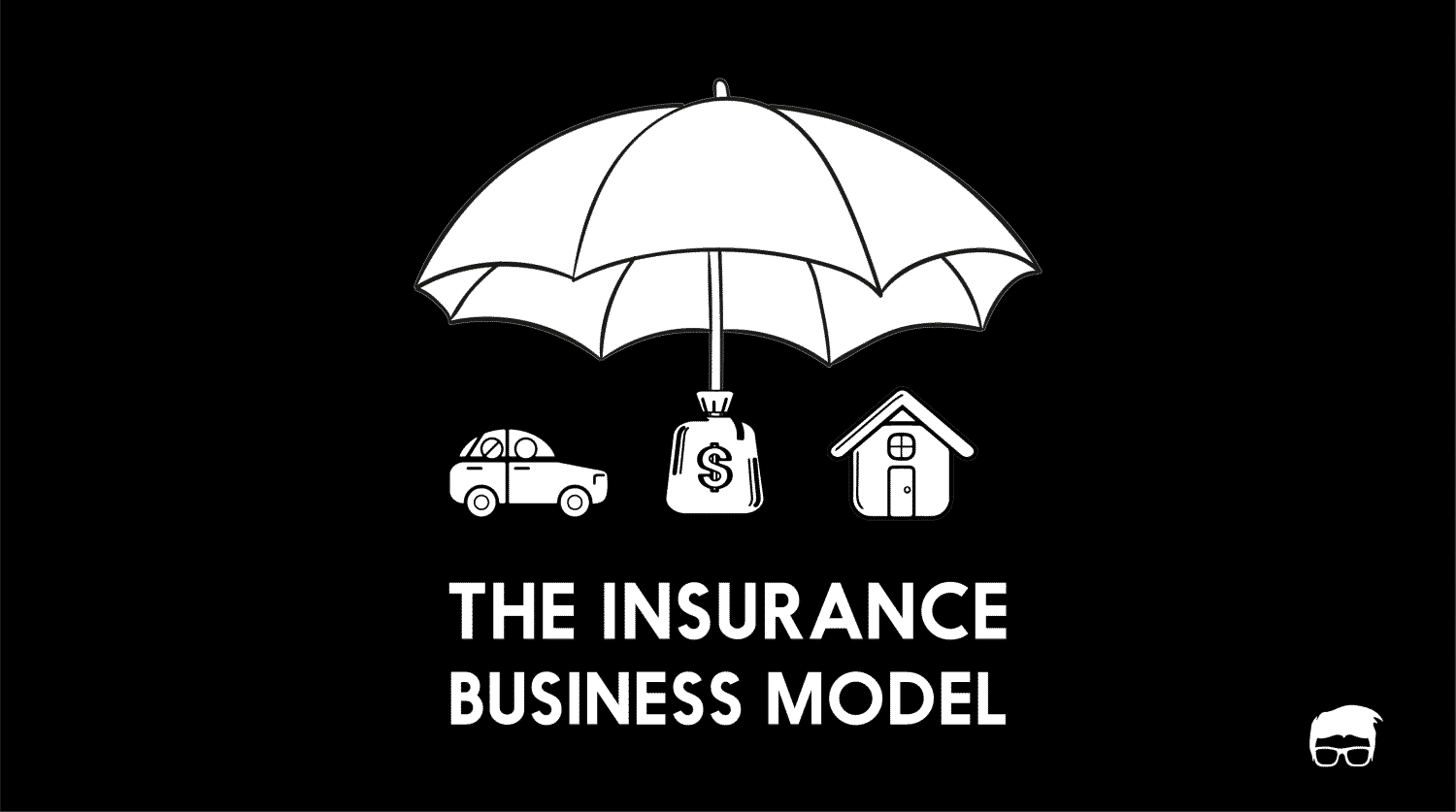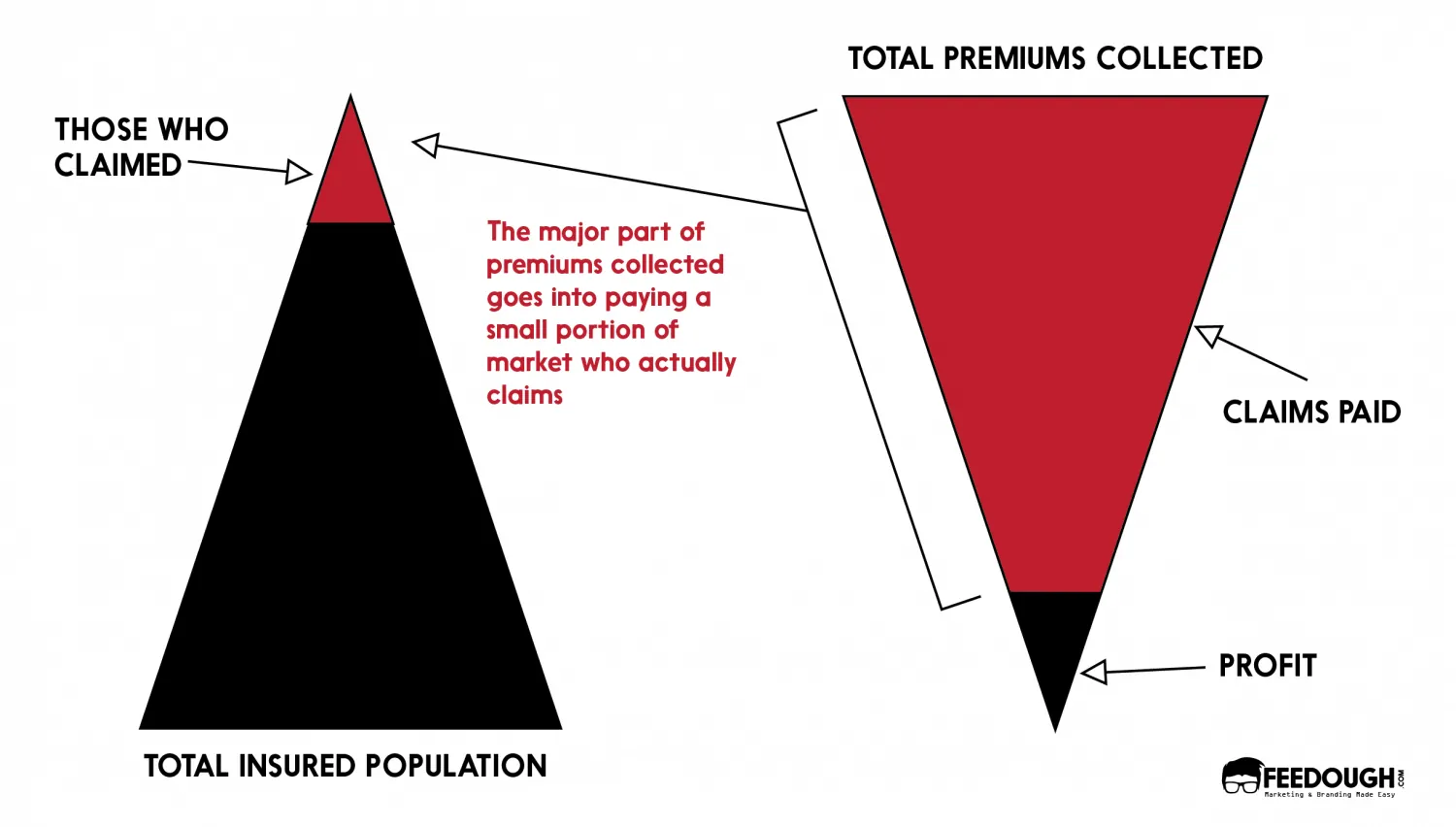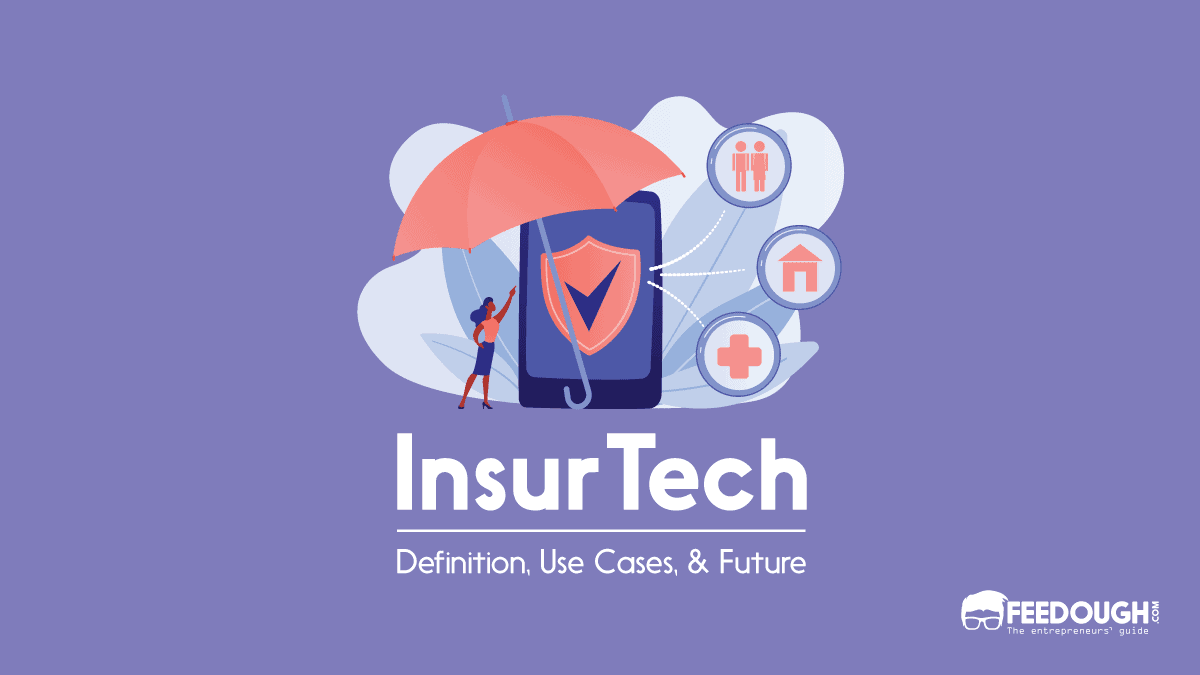What happens if your car crashes or your house burns down or your baggage gets lost on your next flight or you are diagnosed with a critical illness whose treatment is going to cost you tons of money? Will you dig deep into your coffers every time such a crisis occurs? What if you don’t even have the necessary amount in the first place?
Simple. You get Insurance.
What is Insurance?
The human race has invented a sort of fantastic concept called insurance over its history and it has been an absolute life-saver for people all over the world. Unless you have been living under a rock all your life, you would most probably know what insurance is. The dictionary defines insurance as –
An arrangement by which a company or the state i.e the insurer undertakes to provide a guarantee of compensation for specified loss, damage, illness, or death of the insured in return for payment of a specified premium
Insurance has been around for centuries. Hundreds of years ago, when ships used to get destroyed and sailors used to lose their cargo, they came up with the idea that by dividing the cargo among ships, they can divide their risk too. Total financial decimation was avoided. The same principle is applied in this case as well. Thousands of people pay small amounts to cover the costs of a few in times of crisis.
Now the premium you pay every year is just a small fraction of the total sum insured and thus you happily end up paying it up every year. But for any business to be profitable, income must be greater than the expenses. Have you ever wondered how the insurance companies operate? If what you pay to your insurance company is just a small fraction of what they pay you when you file a claim, how do they even make money? How are they even in business and a quite profitable one at that?
To answer these, let’s dive into their business model first.
Business Model of Insurance Companies
The business model of insurance companies revolves around risk. The premium is decided by pricing that risk using sophisticated algorithms and statistical tools which vary across companies and types of insurance. Whenever an insurer offers a conditional payout of a seemingly huge sum, the likeliness of the insured claiming for that payout is calculated and is stretched across the entire premium payment duration.
The amount collected as premiums from various people is collectively slightly more than what the insurer has to pay to the some of the insured every year. This is so because most of the revenue comes from the interest that is generated from investing the premium money in safe, short-term assets. This is what generates profits for any insurer and covers expenses such as commissions, salaries, administrative costs etc.
When a customer files a claim, the claim is checked for authenticity and accuracy first before the payout is made, so that losses due to fraudulent claims can be minimised. There is insurance for everything in the world today, from life to property to car to even travel. The basic business model mostly remains the same, though the process of determining the premium amount and conditions of payout might vary.
How Do Insurance Companies Make Money?
Insurance companies make money in the following two ways:
Underwriting Income: This is the difference in the amount of money collected from the people as premiums and the money paid when a claim is filed in the hour of need.
Investment Income: What you pay as a premium is invested further so that it accrues interest over time and that is further used to cover the various expenses of the insurer. Most insurance companies have a well-diversified portfolio and invest in both low-risk fixed-income securities and high-risk, high-return equity markets.
Why is the Premium Different for Different People?
The premium amounts vary for different individuals. Let me give you a simple example to explain why.
Let’s say you have insured your health and you are a fully fit individual. Your friend has insured his health from the same insurer but he is a full-blown alcoholic and on the verge of having cirrhosis. Your friend’s probability of ending up in a hospital would be far higher than yours. As an insurance company, it makes plain business sense to charge a higher premium from your friend as there is a higher probability of him ending in a hospital and filing a claim. For all we know, someone as fit as you might never even need to visit a hospital. So the money the insurer gets from people like you is used for people like your friend. When an insurance company assumes greater risk, the corresponding premium goes up too. This is also called loading of premium.
Do All People Get the Insurance Money at the Time of Claim?
If yours is a genuine case and you have all the necessary documentation and proofs available, then the claims get processed without a glitch. Most insurance companies have a claim settlement ratio of more than 90%. So in 9 out of 10 cases on an average, you get the insured sum when you make the claim. If you lie about your personal and other relevant details while applying for the insurance, then it is a different matter altogether. Taking the above example of you and your friend further, let’s say your friend does not disclose about his alcohol addiction and liver condition while applying for the insurance to avoid paying the higher premium. The insurer is free to not pay anything to your friend, if they later find this out, when he makes the claim in times of need.
You might be wondering how the insurance companies even manage to pay more than 100-200 times the premium amount when you claim it. It might seem unbelievable to you but the insurance companies arrive at the premium amount after careful research and estimations so that the premium collected every year from all people is slightly more than what they have to disburse at the time of claim. If there are 100 people insured, there will be only 3 who would file a claim and the other 97 would not. Since the insurance industry runs on volume, these odds keep the insurance machinery well-oiled and running. The extra money that remains can be carried forward and used in years when the number of claims goes up due to some reason.
How Do Insurers Set Premiums For an Insurance Policy
Insurance companies keep track of the claim ratio or the loss ratio for every year. This the ratio of total money paid in claims and other adjustment expenses to the total amount earned in premiums. Based on this ratio, the premiums for future years are calculated. The insurance company takes all expenses into account, including the management costs and commissions and then keeps a margin of 2-5%.
At the end of the year, the actual payouts are compared with the original estimations and the premiums are future cases are adjusted accordingly.
Here are the other factors that are taken into account for some of the major types of insurance:
- Life Insurance: Life insurance companies consider the average lifespan of a person to get an estimate of how much they need to charge as premium and for how many years to cover their claim expenses.
- Health Insurance: Health insurance companies take into account all information such as a person’s age and his past medical records, his present condition, charges for different medical procedures, related expenses, inflation etc. to decide their premium.
- Auto Insurance: Auto insurance companies consider the age of the car to decide the premium amount. This information helps them decide how the car will perform, how often it will require maintenance, how likely it is for the car to be in an accident etc.
We have seen how beneficial insurance can be in unexpected adverse situations. It keeps us stress-free and relaxed and also provides the insurance companies the money to invest and keep the economy running. At the end of the day, insurance is a volume game. The insurance companies operate like casinos and know that they have the odds in their favor and even if there are an overwhelming number of claims in one year, it shall balance out in the coming year. In the long run, they shall be profitable. As for you, it would be wise to insure every precious thing you own, including your life. You never know when and how life throws you a curveball. As they say, when life gives you lemons, make lemonade or better still, get insurance.
Go On, Tell Us What You Think!
Did we miss something? Come on! Tell us what you think of this article on How Do Insurance Companies Make Money? in the comments section.
Product Guy. Introverted Marketer. Engineer by education. Movie and TV Geek by nature. Can be seen reading comics and non-fiction books when not binging on movies and Netflix shows. Pop-culture junkie. Out and out foodie. Wee bit self-obsessed.”










